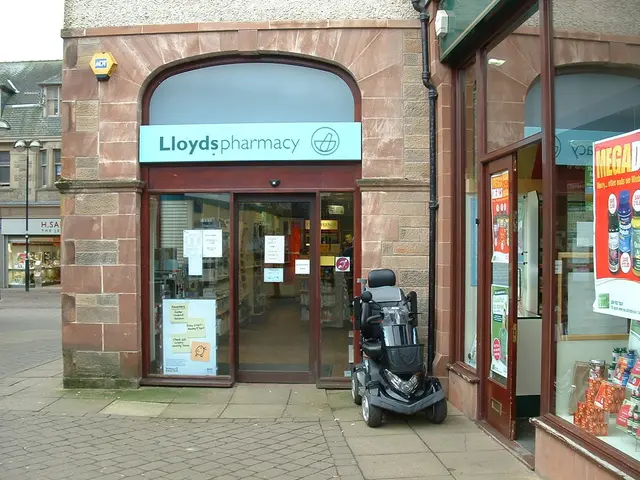Understanding Workers' Compensation and Medicare Intersection: Key Points to Note
Warning: This content discusses topics related to Medicare, workers' compensation, and insurance that may be complex for some readers. However, we'll break it down in an easy-to-understand manner.
Navigating the intersection of Medicare and workers' compensation is essential. Neglecting to inform Medicare about a workers' compensation arrangement could lead to claim denials and potential financial obligations.
Here's a simplified, straightforward rundown:
Workers' compensation, a form of insurance, provides benefits for individuals who suffer work-related injuries or illnesses. In the United States, the Department of Labor's Office of Workers' Compensation Programs manages this program for federal employees and others.
If you're currently on Medicare or will be soon, understanding the impact of workers' compensation on your benefits can save you from potential disputes over medical costs related to work-connected injuries or illnesses.
How does a workers' comp settlement affect Medicare?
Under Medicare's secondary payer policy, workers' compensation should cover any treatment for work-related injuries before Medicare steps in. However, in cases where immediate medical expenses occur before the workers' compensation settlement is received, Medicare may pay first and then request reimbursement.
To minimize this potential recovery process, the Centers for Medicare & Medicaid Services (CMS) tends to monitor the total amount of funds from workers' compensation for medical care related to the injury. In some cases, Medicare may ask for the implementation of a workers' compensation Medicare set-aside arrangement (WCMSA) for these funds. Medical care will only be covered once the WCMSA funds have been expended.
What settlements need to be reported to Medicare?
Workers' compensation must submit the total payment obligation to the claimant (TPOC) to CMS to ensure the appropriate portion of the person's medical expenses is covered by Medicare. This is crucial if the person is currently on Medicare based on age or receiving Social Security Disability Insurance, and if the settlement is $25,000 or more.
Additionally, if the person is not yet on Medicare but will qualify within 30 months of the settlement date and the settlement amount is $250,000 or more, a TPOC is necessary.
Apart from workers' comp, individuals must also report to Medicare if they file a liability or no-fault insurance claim.
For questions, you can reach out to Medicare by phone at 800-MEDICARE (800-633-4227), TTY 877-486-2048, or through live chat on Medicare.gov during specific hours. If your questions concern the Medicare recovery process, contact the Benefits Coordination & Recovery Center at 855-798-2627 (TTY 855-797-2627).
Keep in mind:
- A Medicare set-aside arrangement is voluntary but is usually necessary if the workers' compensation settlement exceeds $25,000 for current Medicare beneficiaries, or $250,000 for those eligible within 30 months.
- Misusing the funds in a Medicare set-aside arrangement can result in claim denials and reimbursement obligations to Medicare.
In essence:
- Workers' compensation covers work-related injuries or illnesses for eligible individuals.
- Understand the impact of workers' compensation on Medicare benefits to avoid claim disputes.
- Notify Medicare about workers' compensation agreements to avoiding future claim rejections and potential financial obligations.
For more guidance, explore our Medicare hub. Stay informed to stay ahead!
- If not informed, neglecting a workers' compensation arrangement could potentially lead to claim denials and financial obligations under Medicare.
- In the United States, the Department of Labor's Office of Workers' Compensation Programs manages the workers' compensation program for federal employees and others.
- Under Medicare's secondary payer policy, workers' compensation should cover any treatment for work-related injuries before Medicare steps in, but Medicare may pay first and request reimbursement if immediate medical expenses occur before the workers' compensation settlement is received.
- To minimize potential recovery processes, the Centers for Medicare & Medicaid Services (CMS) may ask for the implementation of a workers' compensation Medicare set-aside arrangement (WCMSA) for funds related to the injury.
- Workers' compensation must submit the total payment obligation to the claimant (TPOC) to CMS to ensure the appropriate portion of the person's medical expenses is covered by Medicare if the settlement is $25,000 or more for current Medicare beneficiaries, or $250,000 or more for those eligible within 30 months.







